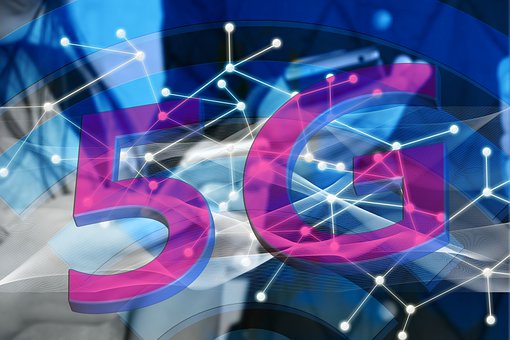The future lies in 5G. Governments and mobile technology firms from different countries have drastically intensified their efforts to roll out 5G technologies. Fifth-generation (5G) wireless technology offers us definite benefits, incorporating faster speeds, reduced latency, and the potential for free connectivity for many devices. The adoption of the brand-new standard will assist all areas of the economy. As 5G will enable the creation of an actual Internet of Things, regular consumers will also experience it.
What is 5G?
The fifth generation of wireless cellular technology, 5G, offers more capacity, reliable connectivity, and quicker upload and download speeds than earlier networks. The way users utilize the Internet for apps, social networks, and information might be revolutionized by 5G. It is significantly quicker and more dependable than the presently prevalent 4G networks. For instance, 5G networks will benefit technologies such as self-driving vehicles, sophisticated gaming apps, and streaming video that need a high-speed data connection.
Why is 5G technology sought-after?
A considerable rise in the quantity of data produced is caused by the demand for Internet connectivity and the introduction of innovative technologies like automation, AI, and the Internet of Things (IoT). Over the next ten years, the data generated will expand by hundreds of zettabytes due to exponential growth. It is necessary to improve the present mobile infrastructure since it was not created to handle this amount of information. Here, 5G rises to the challenge.
This technology can enable and grow applications like cloud connection traffic administration, drone delivery, chats, and console-level game streaming thanks to its fast speed, high bandwidth, and low latency. There are countless uses for 5G technology, including mobile workforces, remote learning, and emergency response. It can change how people live and work and the state of the international economy.
What will we use 5G for?
Consumers will see the first change as a modest increase in the wireless Internet capacity available over cellular networks. The new network will also be helpful to the business community. For example, virtual reality goggles and intelligent gadgets to operate in production shops with thousands of people simultaneously will be made possible by minimal latency, fast speed, and simultaneous network capacity expansion.
When sensor systems are required, such as in the agriculture industry, 5G will be helpful. They will be able to monitor the substrate's status over time, such as the presence of pests, the onset of diseases, and the usage of pesticides locally rather than over a whole field. We are also approaching a day when self-driving automobiles will be commonplace. Also, their labor will be safer the more sensors they employ. Moreover, this data must be transferred across quick and dependable mobile networks.
What benefits can 5G bring to society?
There are several ways in which society will profit from the development of 5G networks, which are expected to generate billions of dollars in economic value and millions of employment:
- Smart towns. IoT devices are the foundation of smart cities, which gather real-time information from infrastructure, people, and traffic. By studying this information, city planners may improve choices, lower emissions, enhance public services, and enhance air quality. Introducing the 5G cloud might serve as the impetus for linking the world's biggest cities.
- Healthcare. 5G networks can considerably increase the value of medical technology. For instance, minimal latency will make sharing real-time information in HD video possible, which may help remote surgery become more common. It also foresees the proliferation of swallowable and wearable gadgets that will provide information to doctors. Real-time administration will enhance the customization of patient treatment and assist medical professionals in spotting illness symptoms early.
- Environment. Globally, 5G has the potential to lower emissions. The two advantages are the effectiveness of information transmission and the low power consumption of 5G technology compared to networks from earlier generations. Also, it enables real-time monitoring of environmental indicators such as emissions, air quality, water quality, and others. Moreover, 5G will support the growth of telecommuting, intelligent buildings, smart grids, and electric cars, all of which will assist the environment by using resources more effectively and cutting down pollution.
The greater the influence of mobile Internet on business, the higher its quality must be. Business processes may be changed, choices can be made more quickly, efficiency can be increased, and expenses can be decreased thanks to telecom technology, particularly high-speed mobile Internet.
Predictions for 5G
1.5 billion people are anticipated to have 5G connections by 2024. Nevertheless, there has yet to be a single 5G standard. Several infrastructural and technological trials are being conducted, many of which still need to be in the development stage. Only some 5G devices are being marketed for sale. Even 5G devices will initially operate via frequency refarming, utilizing the 4G network's infrastructure. Yet, this standard will be more demanding on smartphone makers since a far more powerful battery would be required to support it.
Final words
New opportunities are presented by 5G technology for individuals, businesses, and industrial sectors. The fourth industrial revolution is now unfolding. By reevaluating business models, and utilizing information and artificial intelligence, 5G technology aids in cost and resource reduction. Moreover, it enables you to develop new products considering consumer preferences.
In a "smart" world of network connections, 5G will be able to connect people, objects, data, applications, transportation systems, and cities. In counterpart to accelerating 3D video, work and spending leisure time in the cloud, remote medical services, virtual reality, communication between machines, and production automation, 5G will provide full power to applications of "smart" homes, "smart" buildings, and "smart" cities.
Charles Cross is a financial who analyzes the financial market incredibly well. He works for the company ICOholder global analytics platform with the largest crypto database. Charles is more than sure that the best work is done quickly and accurately.


No comments yet